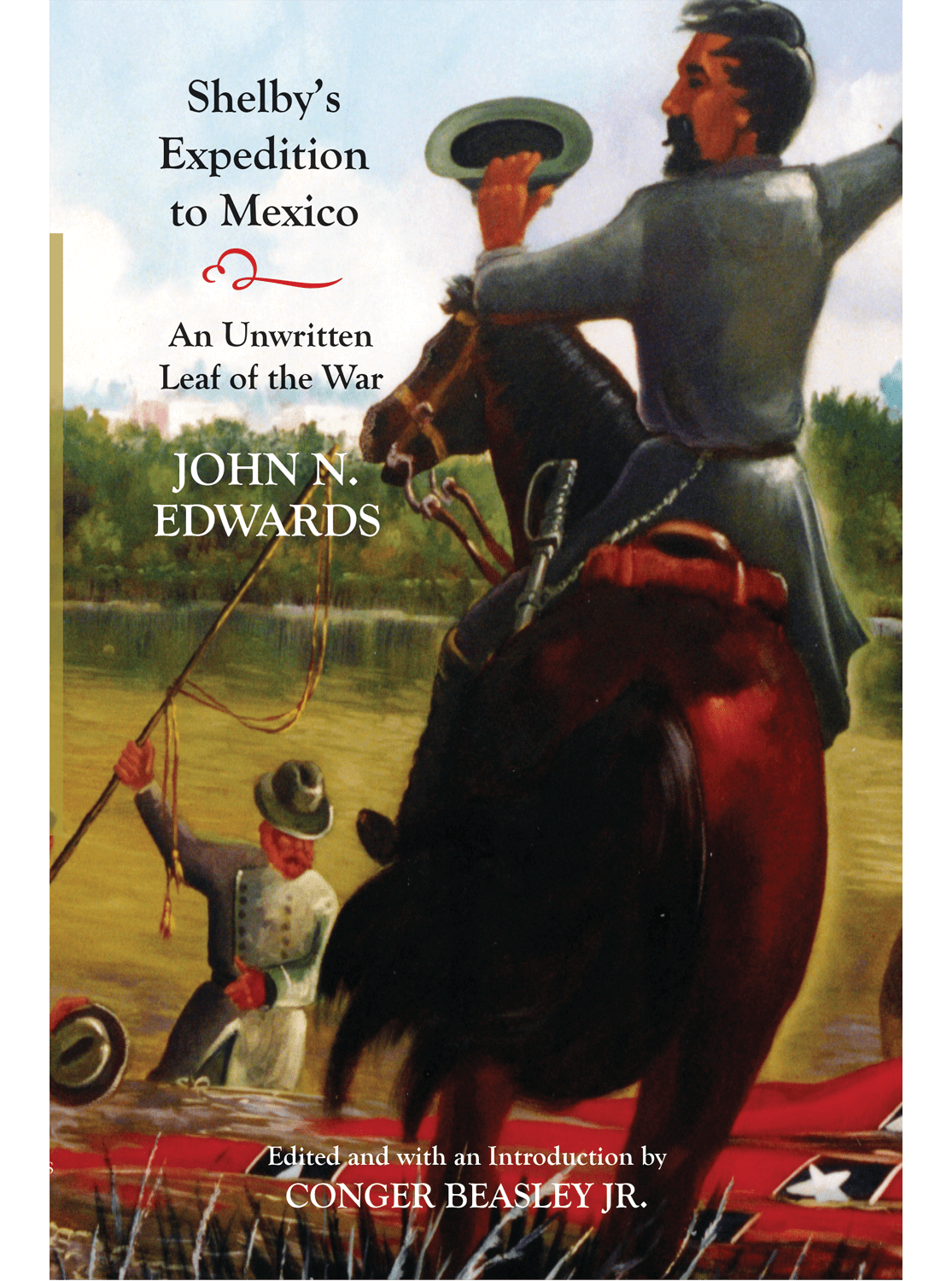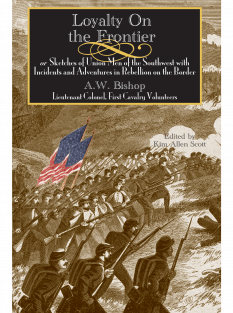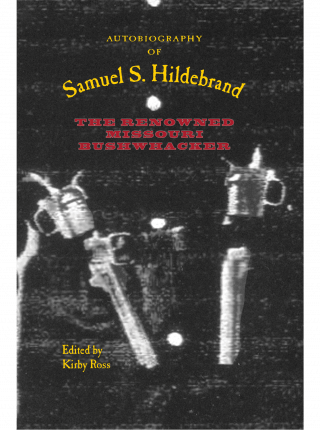Confederate general Joseph O. Shelby and his legendary Iron Brigade refused to acknowledge the end of the Civil War. Instead, they fought their way to Mexico in search of a place where they could continue to defy the U.S. government. These veteran Missouri cavalrymen clawed their way for fifteen hundred miles, fighting Juaristas, Indians, desperados, and disgruntled gringos. They disbanded only after they had offered their services to Emperor Maximilian and were turned down.
Shelby’s adjutant, journalist John N. Edwards, first published his story of the exploits of this superb mounted brigade and its quixotic final march in 1872. Conger Beasley provides a lively introduction that includes the first biographical sketch of the author. The 1969 movie The Undefeated starring John Wayne and Rock Hudson was based upon Shelby’s expedition.
Conger Beasley Jr. is the author of a number of books, including Patagonia: Wild Land at the End of the Earth; Spanish Peaks; We Are a People in the World: The Lakota Sioux and the Massacre at Wounded Knee; and Sundancers and River Demons: Essays on Landscape and Ritual, winner of the Thorpe Menn Award for Literary Achievement.
“The story of probably the most colorful and important adventure of ex-Confederates in postwar Mexico. . . . An expertly edited reprint of the history of a most unusual and enlightening chapter of the Civil War . . . it will be both enjoyed and valued by anyone interested in the war in the western states and territories.”
—Civil War Book Review
“This is the romantic yet authentic tale of how brave men with brave hopes sought to redeem defeat in one war by victory in another war, only again to lose all save honor. A classic.”
—Albert Castel, author of Decision in the West: The Atlanta Campaign of 1864
“. . . [R]ecords the acts and sufferings of a body of men as desperately brave and as wildly adventurous as any whom the world has known. . . . [This is] a story to dazzle the fancy and stir the blood with deeds of desperate valor, with hair-breadth escapes, with splendors of tropical scenery, and horrors of Mexican cruelty. . . . [The] author, after the manner of Victor Hugo, whose style he has taken for his model, has thrown some arabesques of a lively imagination around and among his historical figures.”
—September 1874, Southern Magazine, The Transactions of the Southern Historical Society
“Shelby’s Expedition to Mexico is the romantic yet authentic tale of how brave men with brave hopes sought to redeem defeat in one war by victory in another war, only again to lose all save honor. A classic.”
—Albert Castel, author of Decision in the West: The Atlanta Campaign of 1864

“The Civil War in the West has a single goal: to promote historical writing about the war in the western states and territories. It focuses most particularly on the Trans-Mississippi theater, which consisted of Missouri, Arkansas, Texas, most of Louisiana (west of the Mississippi River), Indian Territory (modern day Oklahoma), and Arizona Territory (two-fifths of modern day Arizona and New Mexico) but encompasses adjacent states, such as Kansas, Tennessee, and Mississippi, that directly influenced the Trans-Mississippi war. It is a wide swath, to be sure, but one too often ignored by historians and, consequently, too little understood and appreciated.
Topically, the series embraces all aspects of the wartime story. Military history in its many guises, from the strategies of generals to the daily lives of common soldiers, forms an important part of that story, but so, too, do the numerous and complex political, economic, social, and diplomatic dimensions of the war. The series also provides a variety of perspectives on these topics. Most importantly, it offers the best in modern scholarship, with thoughtful, challenging monographs.
Secondly, it presents new editions of important books that have gone out of print. And thirdly, it premieres expertly edited correspondence, diaries, reminiscences, and other writings by participants in the war.
It is a formidable challenge, but by focusing on some of the least familiar dimensions of the conflict, The Civil War in the West significantly broadens our understanding of the nation’s most pivotal and dramatic story.”
—Daniel Sutherland, from the preface of I Do Wish This Cruel War Was Over





